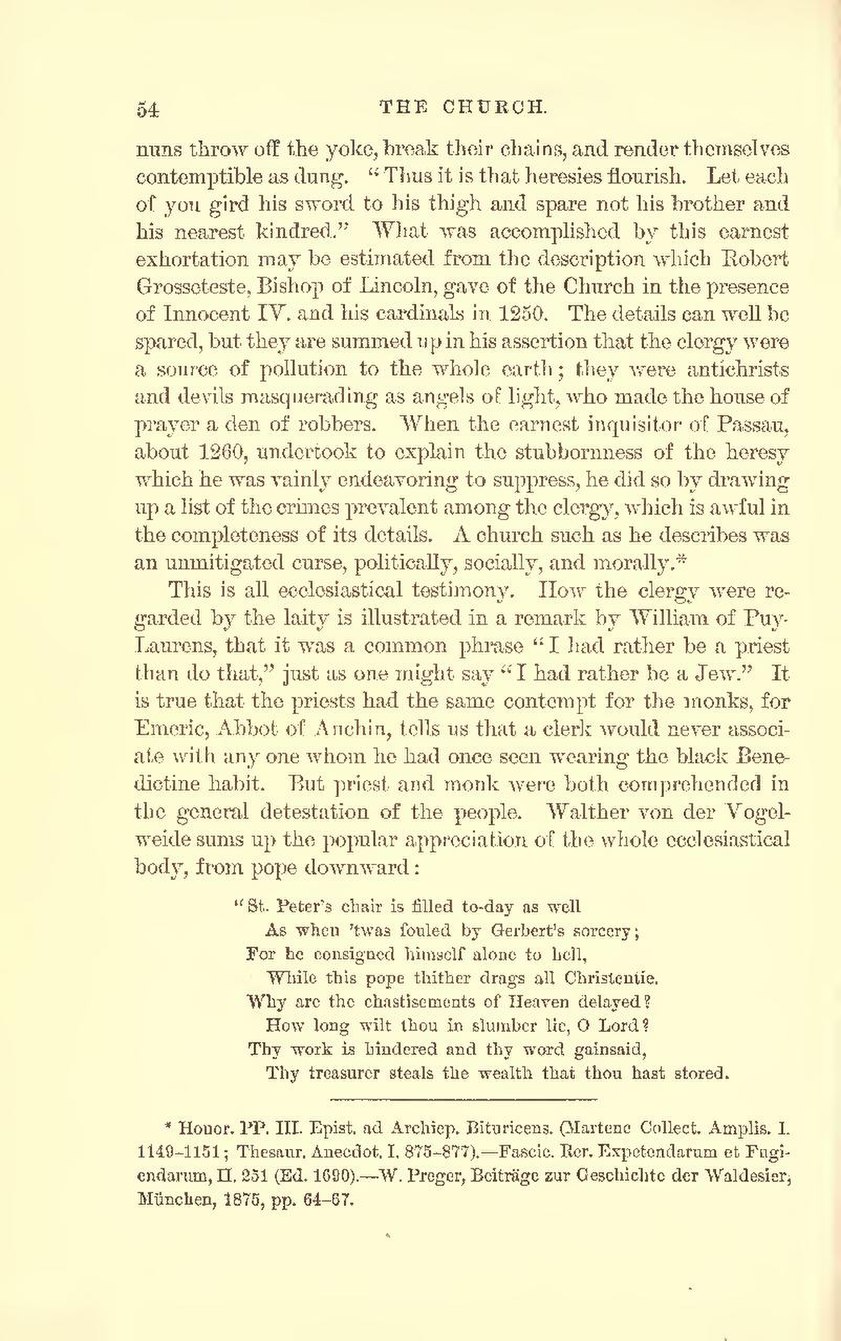nuns throw off the yoke, break their chains, and render themselves contemptible as dung. "Thus it is that heresies flourish. Let each of you gird his sword to his thigh and spare not his brother and his nearest kindred." What was accomplished by this earnest exhortation may be estimated from the description which Robert Grosseteste, Bishop of Lincoln, gave of the Church in the presence of Innocent IV. and his cardinals in 1250. The details can well be spared, but they are summed up in his assertion that the clergy were a source of pollution to the whole earth; they were antichrists and devils masquerading as angels of light, who made the house of prayer a den of robbers. When the earnest inquisitor of Passau, about 1260, undertook to explain the stubbornness of the heresy which he was vainly endeavoring to suppress, he did so by drawing up a list of the crimes prevalent among the clergy, which is awful in the completeness of its details. A church such as he describes was an unmitigated curse, politically, socially, and morally.[1]
This is all ecclesiastical testimony. How the clergy were regarded by the laity is illustrated in a remark by William of Puy-Laurens, that it was a common phrase "I had rather be a priest than do that," just as one might say "I had rather be a Jew." It is true that the priests had the same contempt for the monks, for Emeric, Abbot of Anchin, tells us that a clerk would never associate with any one whom he had once seen wearing the black Benedictine habit. But priest and monk were both comprehended in the general detestation of the people. Walther von der Vogelweide sums up the popular appreciation of the whole ecclesiastical body, from pope downward:
"St. Peter's chair is filled to-day as well
As when 'twas fouled by Gerbert's sorcery;
For he consigned himself alone to hell,
While this pope thither drags all Christentie.
Why are the chastisements of Heaven delayed?
How long wilt thou in slumber lie, O Lord?
Thy work is hindered and thy word gainsaid,
Thy treasurer steals the wealth that thou hast stored.
- ↑ Honor. PP. III. Epist. ad Archiep. Bituricens. (Martene Collect. Amplis. I. 1149-1151; Thesaur. Anecdot. I. 875-877).—Fascic. Rer. Expetendarum et Fugiendarum, II. 251 (Ed. 1690).—W. Preger, Beiträge zur Geschichte der Waldesier, München, 1875, pp. 64-67.
